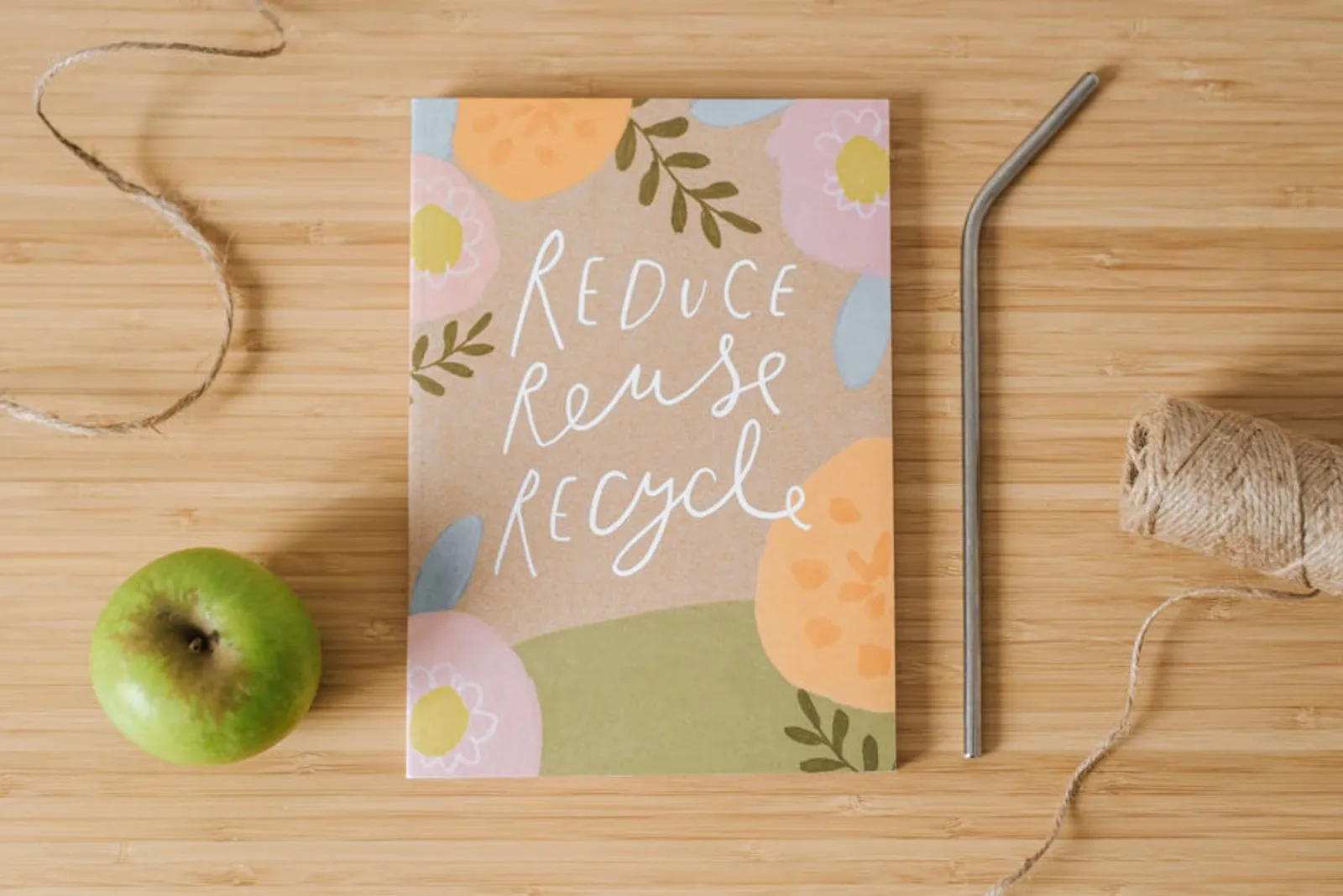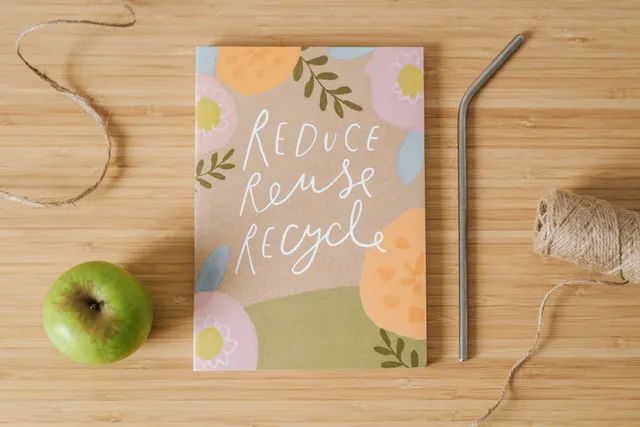
Welcome to the zero waste journey! Embracing a zero waste lifestyle means reducing your environmental footprint by minimizing waste with a possibility of making financial savings. Embarking on a zero waste journey can be daunting for beginners, with convenience, cost, and lack of knowledge being the biggest blockers for taking the first steps.
However, with practical tips, budget-friendly solutions, and education, you can overcome these hurdles and make meaningful strides towards a greener, zero waste lifestyle.
In this beginner’s guide, we’ll explore simple steps to get you started without having to worry about how to maintain your journey during your fast paced lifestyle. Let’s embark on this sustainable adventure together!
Keep in mind:
Zero waste living isn’t about perfection; it’s about progress. Don’t go throwing away everything you own, just because it’s plastic and there is an alternative. The idea is to get every last drop out of what you have. Best way to reduce your waste, know your waste! Look in your bin, pick one item, find a ZW/lower waste alternative, once incorporated into your daily life, look in your bin again.
Getting Started
- Use what you have: Use up what you have first then switch to zero waste alternatives when you run out of something. Do not chuck everything just to buy zero waste stuff. You’re not helping that way.
- Know your waste: Best way to reduce your waste is to know your waste! Start by looking in your bin, pick one item, find a zero waste alternative, and once incorporated into your daily life, look in your bin again.
- Baby steps: Do what you can when you can where you can. Everyone’s abilities are different.
- Pace yourself: You are not going to go zero waste overnight, it’s a journey, be patient. It is easy to be overwhelmed so follow along your journey at your own pace.
- Keep learning: be open to continuously learning and finding better ways to refine your strategies.
- Educating others. don’t preach to your friends and family. lead by example. Do not judge other people or critique them on their choices based on what you have decided for yourself. You will quickly turn people off. Rather just be yourself and enjoy their company. Over time some of what you follow might rub off on them.
- Donate: While you are finding your feet, look at donating to a worthy cause that you would like to support. Do your research about the charity you are hoping to donate to ensure they are genuine and that your donation will be used in the way you assume it will be used.
- Is it sustainable: Read the following article to understand why zero waste movement can’t be sustainable and use that information to plan your own journey to zero waste.
Personal well-being
- Declutter: Getting rid of excess stuff can benefit your mental health. Reducing clutter, makes you feel calmer, relaxed and more in control. Decluttering also reduce dust, mold and mildew which could trigger allergies or asthma.
- Exercise: Regular exercise is a proven method to maintain mobility, balance and energy. Checkout our guide that focuses on exercises that can be done by people of all ages.
- Inspiring resources: Take a step back from your daily hustle and bustle and hit the pause button. We have compiled a list of inspirational resources that you can watch/read to bring added positivity to your day.
Traveling
- Drive less, walk more.
- Bike and/or invest in an electric bicycle.
- Use Public transport more often.
- Checkout car share schemes.
- Switch to electric cars or motorcycles.
- Keep your vehicle tires properly inflated to improve mileage.
- Use reusable cup/mug/bottle stainless steel or glass tumbler(water bottle).
Office/Home admin
-
Unsubscriber and Delete: Unwanted emails and online newsletter means more data needs to be saved and served from data centers which means more energy is used. Delete all unneeded email and unsubscribe from unnecessary newsletter to help reduce energy consumption.
-
Manage backups: Regularly review your backed up media content. You are bound to find lots of duplicates and blurry photos and videos. Delete them to save space and energy.
-
Online statements: Opt for e-statements for banks and utilities.
-
Ebooks and Audiobooks: Switch to Ebooks and Audiobooks. You can easily take them on your travels, share with friends and family and reduce the amount of paper and resources that would have been used to make a paper copy.
-
Print double side: when possible, use both sides of a paper. if you have old printed pages that you don’t need anymore, use them to take notes or rough work.
-
Donate old phones: Old phones can be donated to shelters instead of ending up in landfill. Old phones can still be used to call emergency services.
Clothing
- Fix clothes with sewing/patches instead of buying new ones. It takes 2700 lites to make one t-shirt- enough for one person to drink for 3 years
- Design new outfits from older clothes.
- Pay more for higher quality new clothes, they would last longer and help reduce waste in the long term.
Home
- Energy independence: Make your home energy independent as much as possible. Start small if you can not afford all in off-grid. Look at options to install solar power, wind power or heat pumps.
- Energy savers: Choose Energy efficient electronics equipment such as LED bulb, smart thermostats,
- Smart adapters: Use smart power strips/cords to help protect your electronics and conserve energy.
- Energy Supplier: Ask to switch your energy supplier to one that invests or uses green energy.
- Buy second hand: Second hand furniture. Freecycle/Freegle/ friends and family are good sources to find second hand furniture.
- Zero waste groups: Join local/regional zero waste groups (online or offline)
- Moving in: Moving into a new house or flat is an exciting chapter in life, full of fresh beginnings and opportunities but it can also be a time of great waste. From packing materials to new furniture, there’s a lot of stuff that ends up in the landfill. However, it also presents an excellent opportunity to start with a clean, sustainable slate when it comes to your environmental footprint. Follow our guide to plan your moving in day in an eco friendly and sustainable manner while keeping control of your sanity.
Kitchen & Grocery
Kitchens are one important area to focus on when embracing a zero waste minimalist lifestyle. Everyday, kitchens around the world contribute significantly to the overall waste stream. Food waste, plastic waste, cleaning products, and clutter are all key contributors that impact the environment, your physical and mental health and also your financial savings. Follow our guide on “Eco friendly and sustainable kitchen” to explore small conscious choices you can make about your consumption, your environment and waste generation that can make a big rewarding impact to your life.
Food waste
- Grow your own food or some of it e.g mushroom, herbs, vegetables.
- Build a house garden
- Compost your organic waste
- Rain Harvest Water Barrel
- Look in your bin, pick one item, find a Zero waste/lower waste alternative, once incorporated into your daily life, look in your bin again for further advances.
- Bulk items! Being able to bring in a jar and fill it up at the bulk area has been a game changer. I rely on bulk the most for: toothpaste, deodorant, laundry detergent, and lotion. Follow our guide to managing food waste for more creative ways of reducing and managing food waste.
Ordering Food
- Use mesh produce bags
- Wooden or Bamboo Basket for shopping-carrying-storing.
- When ordering takeaway food, bring a reusable bag to pick it up.
Bathroom / Personal care
Bathrooms are essential to all households and often stacked with single use, disposables and toxic products. Read our article and explore simple yet impactful changes to declutter, streamline and revolutionise your bathroom routines while being environmentally responsible and along the way make a positive impact to your savings.
Laundry
Laundry is an essential part of our daily routine, but it can also be a significant source of waste. From the water we use to the energy required to run our machines, laundry can have a significant impact on the environment. Fortunately, there are many ways to make your laundry routine more sustainable and with zero waste. Here are guide on eco-friendly and sustainable ways to do laundry.
Disclaimer
This post may contain affiliate links which means we may receive a commission at no extra cost to you should you click through and make a purchase.
Note: please check the ingredients list of any products that you may wish to try and check for allergies or consult a medical professional for any existing conditions being impacted by switching to new products.
Previous

21-11-2023
Guide to reusing old calendars and publicationsGuide to reusing old calendars and publications
Next

21-11-2023
Couch to 5k planGet started on your fitness journey by following the couch to 5k running plan.